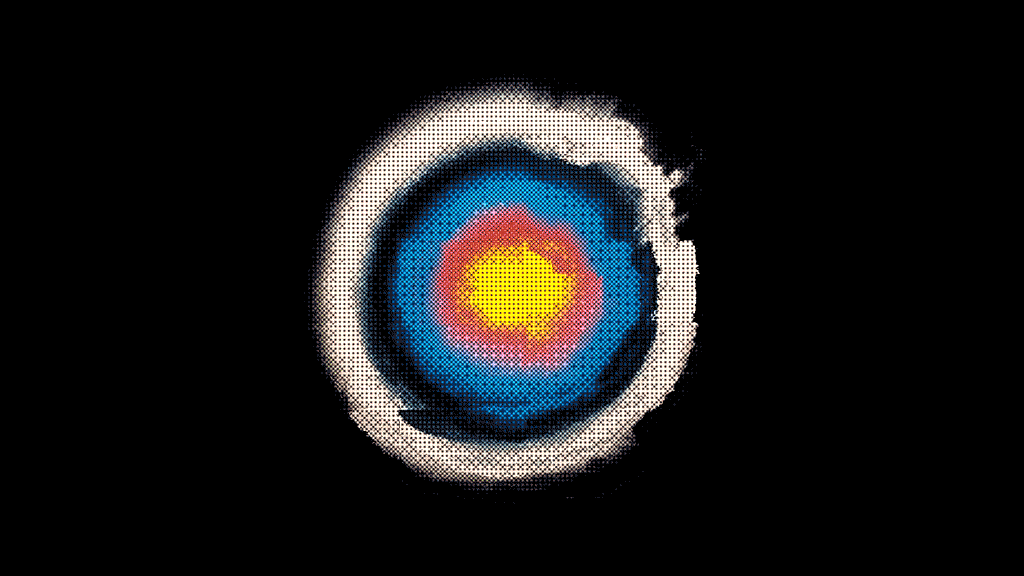Why your attention keeps slipping away
Four science-backed “attention muscles” to strengthen your focus.
with Stephen Johnson • Thu 18 September, 2025
Hey Big Thinkers,
“I’m just doing landscaping until I land a real job,” I’d tell people during the summer after graduating from college. A dozen years later, I like my “real” job, but the joke’s sort of on me. The guy who ran that once-tiny landscaping company is now a multimillionaire. So much for elitist condescension.
What I do miss are the rewards of physical labor: seeing your work made real and ending the day pleasantly exhausted. You sleep soundly. Dinner and beer taste better. Leisure feels earned.
Desk jobs exhaust you too, but often differently. They leave you drained and scatterbrained, with nothing concrete to show for it. One reason is fragmented focus: In knowledge work, it’s easy to trick yourself into thinking you’re fully absorbed in one task, while your focus is really split five ways. It’s taxing and unsatisfying.
How can you learn to direct your attention as deliberately as you direct your muscles to dig a ditch? That’s what behavioral scientist Danny Kenny explores this week in his interview with Dr. Emily Balcetis, whose work shows attention isn’t just passive — it’s a tool you can train.
Read on,
Stephen
THE BIG FLEX
Why your attention keeps slipping away (and how to get it back)
You don’t lose focus because you’re lazy. You lose it because attention is a system that scatters easily, especially if you’ve never trained it. Behavioral scientist Danny Kenny suggests picturing attention as a set of different “muscles” — visual focus, future connection, obstacle planning, and cognitive flexibility — that can be strengthened. Together, they make it far easier to stay focused and achieve your goals. “It’s mastering the invisible skill that makes everything else possible: intentional, directed attention,” he writes.
Fast Stats
1860 — The year scientists began speculating about the possibility of “mirror life.”
1975 — When Kodak created the world’s first prototype of a digital camera.
10 — Incredible facts about the Big Bang, presented by astrophysicist Ethan Siegel.
6 — The core commitments of liberalism, according to legal scholar Cass Sunstein.
PRESENTED BY WAKING UP: GO DEEPER. BEGIN AGAIN.
Embrace the complexity within
I enjoyed this bit of wisdom from our friends at Waking Up: “In every moment, there’s a choice: to rush past or to look closer.” Their app provides a helpful structure of daily practices for folks who want to explore their minds and life’s meaning more deeply. It’s a yearlong journey that some have called life-changing, and they’re offering Big Think readers a full two-week trial.
THE BIG GIMMICK
Neuroscience shows that speed reading is bullshit
I took an online reading speed test before writing this — breezed through it at 394 words per minute. Pretty good, right? No. A follow-up comprehension test showed I only understood about 50% of the content. Expensive classes might claim to multiply your reading speed, but the only thing you're likely to gain is “remarkable dexterity in page-turning,” as Donald Homa, a professor who specializes in memory and the visual perception of linguistic stimuli, once wrote.
MINI PHILOSOPHY
Ian McEwan: “Tourism is a wonderful spectacle of mass derangement.”
By Jonny Thomson
When I was 19 years old, I watched a movie called In Bruges and loved it. So, at the pub that weekend, I sat down with my mate Alex to share a plan:
“Shall we cycle to Bruges?”
“Bruges?” he said.
“Yeah, it’s this place in Belgium.”
Alex and I grew up near Dover, and we had the kind of relationship where cycling through Europe for a week wasn’t an odd suggestion. He said yes, and after a month’s training, we took our bikes on the ferry.
I saw and learned more about France and Belgium in that one week’s cycle tour than on a dozen visits since. Cycling is a gentle and slow-flowing way to see a place. You spend hours pedaling by fields and end up with a café au lait in some sleepy village where “Hello” is the most English you’ll get. You see places that are not in travel guides or on “Top Ten Destination” listicles, because why bother to pay for a holiday to see a dilapidated pub and an understocked, intermittent fish market?
In this week’s interview with the bestselling author Ian McEwan, we answer that question.
Subscribe to Mini Philosophy on Substack for even more from Jonny Thomson.
Popular Columns
Business: Why self-understanding is your most valuable leadership asset
Starts With A Bang: Science’s answer to the ultimate question: Where do we come from?
History: Cosmism: The 19th-century movement to reach space and immortality
Freethink: No, AI won’t take all the jobs. Here’s why.
THE BIG MISCONCEPTION
Biosignatures? Why organics on Mars don’t necessarily signal life
Last week, news broke that NASA’s Perseverance rover discovered a potential biosignature — in the form of organic compounds — on the surface of Mars. Acting NASA Administrator Sean Duffy called it a “groundbreaking discovery.” What should we make of it? At the moment, not too much. Organic compounds can form from biological and nonbiological processes, meaning life didn’t need to exist on Mars for that compound to emerge. Here, astrobiologist Dirk Schulze-Makuch explains what we can and can’t tell about Martian organics and what future Mars missions might do to improve the search for alien life.
Stephen Johnson is the managing editor at Big Think.
Get more from Big Think:
Mini Philosophy | Starts With A Bang | Big Think Books | Big Think Business












I like this